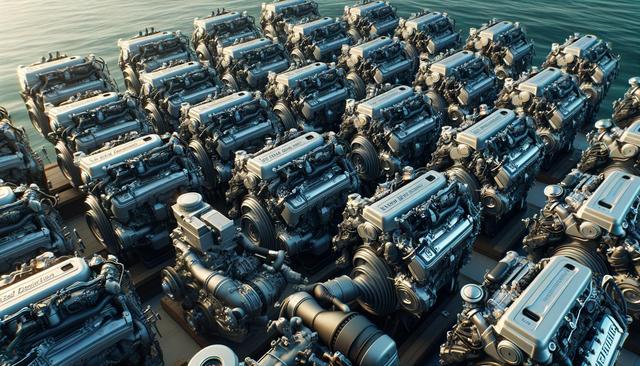Understanding the Benefits of Buying Used Boat Engines
Purchasing a used boat engine can offer several advantages, especially for those who are budget-conscious or seeking a specific model no longer in production. One of the most appealing benefits is cost savings. Used engines generally come at a significantly reduced price compared to new units, making them a viable option for recreational boaters, hobbyists, or small-scale commercial operators.
Another benefit is availability. Many used engines on the market are still in excellent working condition due to careful maintenance by previous owners. These engines may have low hours of use and can provide reliable performance for years with proper care. Additionally, the used market offers a wider variety of models and brands, giving buyers more flexibility in finding an engine that fits their specific boat type and usage needs.
However, it’s essential to weigh these benefits against potential risks. A thorough inspection, service history review, and possibly a professional assessment can help ensure buyers make informed decisions and avoid costly repairs in the future.
Key Factors to Consider When Shopping
Before purchasing a used boat engine, several key factors should be evaluated to ensure you’re getting a dependable product. First and foremost, consider the engine’s age and total hours of use. Marine engines have a typical lifespan measured in running hours, so it’s important to compare the listed hours against industry averages for expected performance.
Other crucial considerations include:
- Engine type (inboard, outboard, or sterndrive)
- Fuel type (gasoline or diesel)
- Compatibility with your boat’s size and configuration
- Availability of replacement parts
- Reputation of the manufacturer and model
It’s also advisable to ask for maintenance records, including details on oil changes, part replacements, and any past repairs. This information can provide insight into how well the engine was cared for and predict potential future issues.
Where to Find Used Boat Engines for Sale
The market for used boat engines is diverse, encompassing both online and offline sources. Local marine dealerships often carry certified pre-owned engines that have been inspected and tested. These may come with limited warranties, adding a layer of security for buyers.
Online marketplaces and forums are another popular option. These platforms provide access to a broader inventory and can help buyers connect with private sellers or specialty resellers. Common places to search include:
- Boating enthusiast forums
- Marine equipment classifieds
- General online marketplaces
- Boat salvage yards
When purchasing online, always ensure the seller is reputable and provides detailed information and images of the engine. If possible, arrange an in-person inspection or hire a marine mechanic to evaluate the engine before completing the transaction.
Inspection Tips and Red Flags to Watch For
Inspecting a used boat engine before purchase is essential to avoid costly surprises. Begin with a visual examination for signs of corrosion, cracks, or oil leaks. Check the condition of hoses, belts, and other rubber components that may degrade over time.
During inspection, consider the following tips:
- Start the engine and listen for unusual noises or vibrations
- Check the color and condition of the engine oil
- Inspect the propeller and lower unit for damage
- Ask for a compression test to evaluate internal engine health
- Review the engine’s serial number and verify it has not been reported stolen
Red flags include inconsistent engine performance, neglected maintenance records, or a seller unwilling to allow a third-party inspection. These signs may indicate hidden issues that could lead to expensive repairs down the road.
Making a Smart Purchase and Ensuring Longevity
After selecting the right used engine, buyers should take steps to ensure a smooth transaction and long-term engine performance. Request a bill of sale that includes all relevant details, such as the engine’s serial number, purchase price, and agreed condition. If buying from a dealer, inquire about return policies or limited warranties.
Once the engine is installed, follow a strict maintenance routine. Regular oil changes, coolant checks, and timely part replacements will help extend the engine’s life. It’s also beneficial to:
- Keep records of all maintenance and repairs
- Store the engine properly during off-seasons
- Flush the engine with fresh water after use, especially in saltwater environments
By taking these proactive steps, you can maximize the value of your investment and enjoy reliable performance from your used boat engine for years to come.







